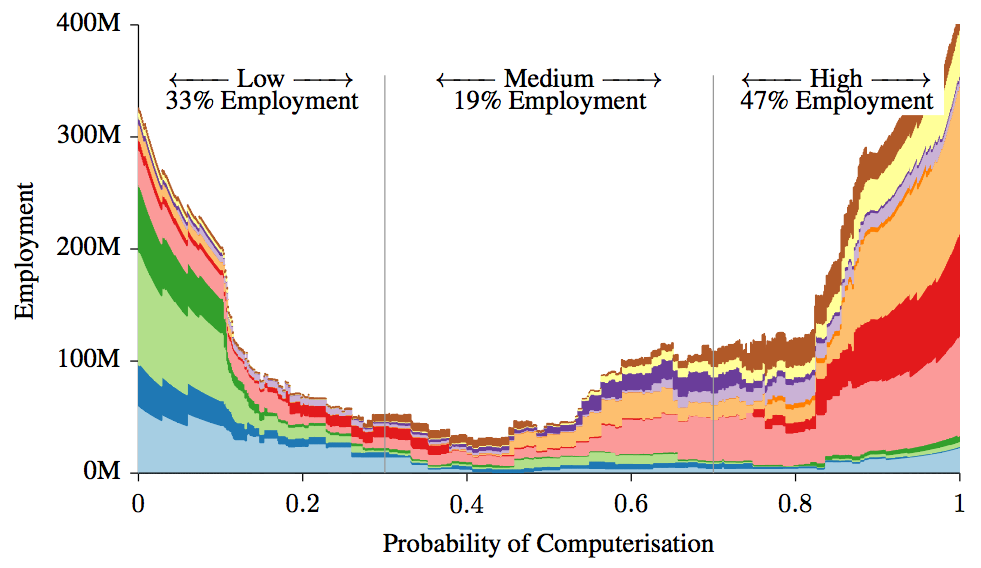
Robohub.org
202
Automation and Employment with Michael Osborne


In this episode Andrew Vaziri speaks with Mike Osborne, Associate Professor in Machine Learning at the University of Oxford. They discuss how advancements in artificial intelligence may change the workforce, the economy and society based on findings from their study on the future of employment.Beyond the big headlines about automation and jobs, Mike discusses how the study was done, the emergence of new jobs, the need for improved education, and ideas for how we might reshape society to spread wealth that results from advances in technology.
Michael Osborne
 Michael Osborne is the Dyson Associate Professor in Machine Learning, Official Fellow of Exeter College and Faculty Member of the Oxford-Man Institute of Quantitative Finance, all at the University of Oxford. He co-leads theMachine Learning Research Group, a sub-group of the Robotics Research Group in the Department of Engineering Science.
Michael Osborne is the Dyson Associate Professor in Machine Learning, Official Fellow of Exeter College and Faculty Member of the Oxford-Man Institute of Quantitative Finance, all at the University of Oxford. He co-leads theMachine Learning Research Group, a sub-group of the Robotics Research Group in the Department of Engineering Science.
Links:
- Download mp3 (13.3 MB)
- Subscribe to Robots using iTunes
- Subscribe to Robots using RSS
- Michael Osborne’s Website
- Future of Employment Study
tags: c-Politics-Law-Society, jobs


